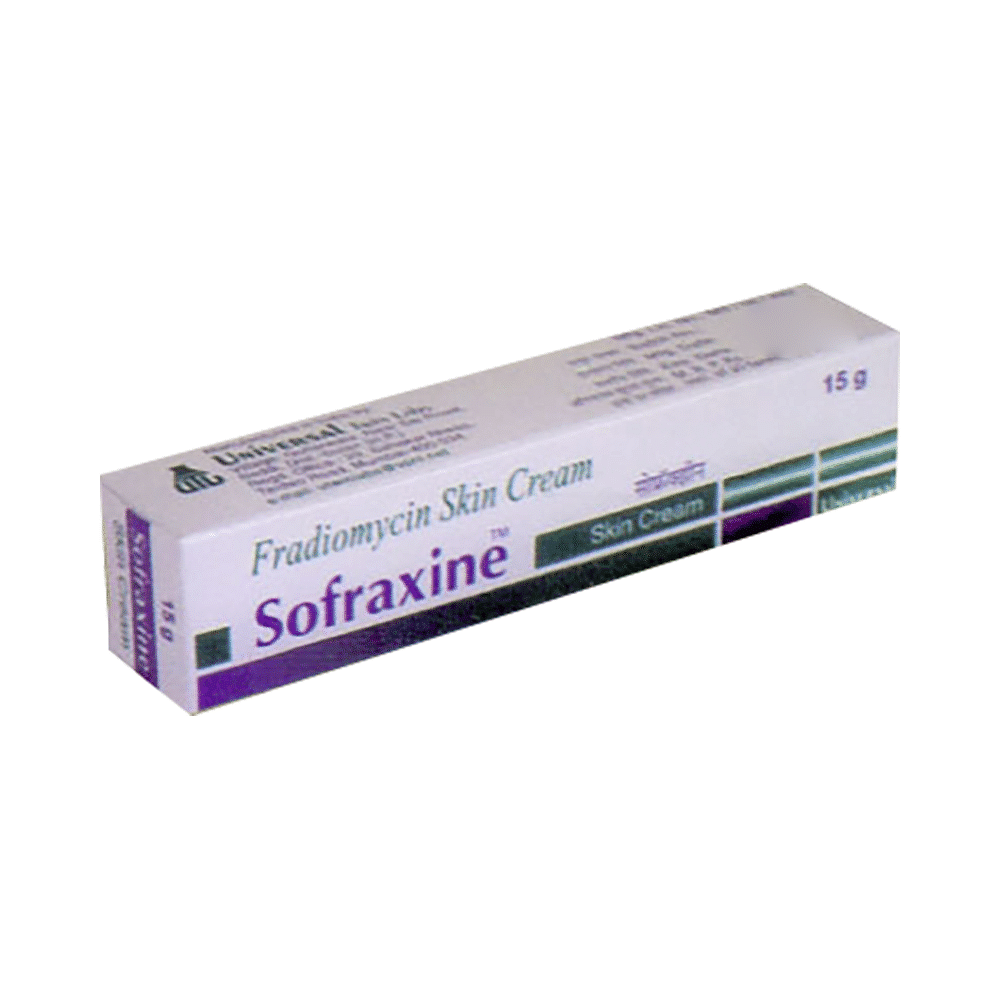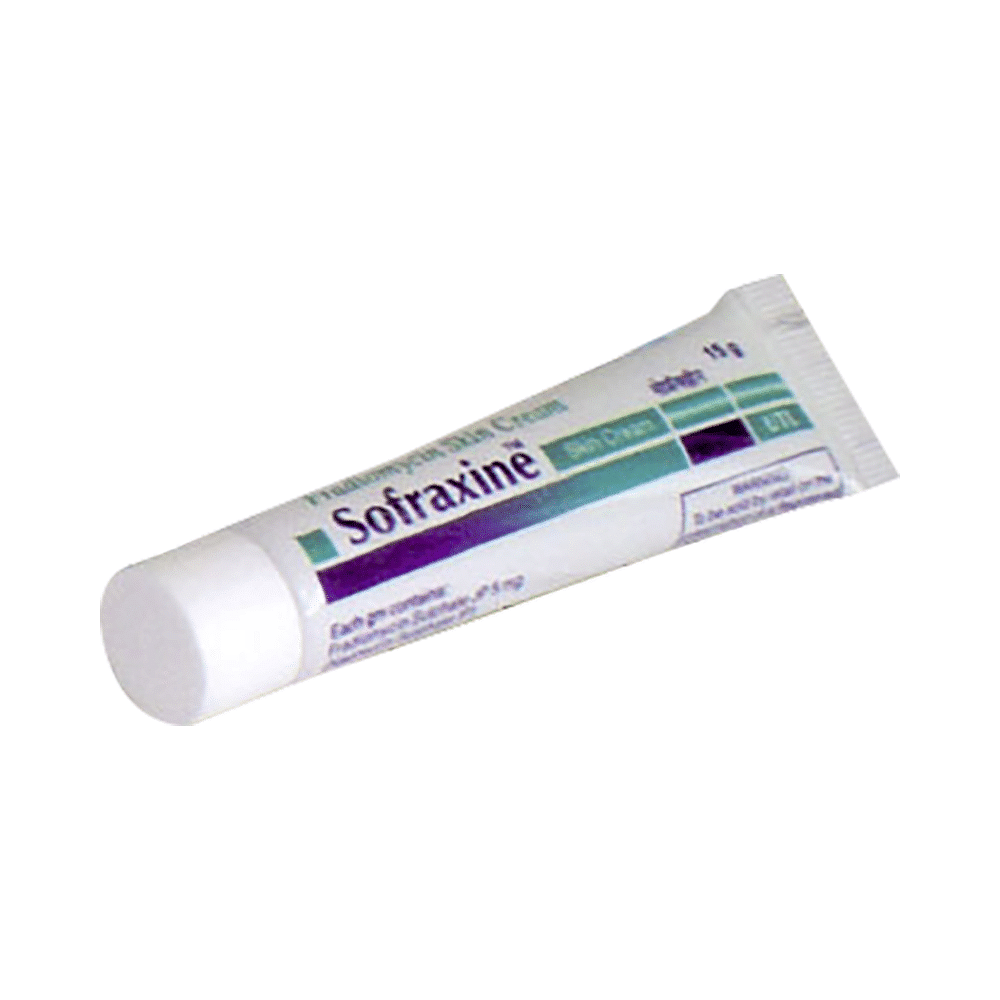

Sofraxine Cream
Manufacturer
Universal Twin Labs
Salt Composition
Neomycin (0.5% w/w)
Key Information
Short Description
Sofraxine Cream is an antibiotic used to treat bacterial skin infections, effective in treating infected cuts, wounds, and minor burns.
Dosage Form
Cream
Introduction
Sofraxine Cream is meant for external use only. It should be applied only to the affected area of the skin as per the dosage and schedule prescribed by your doctor. To get the most benefit, apply it regularly and preferably at a fixed time each day. Do not use larger amounts or apply it more often or for a longer duration than directed. This will only increase the risk of side effects.
Directions for Use
This medicine is for external use only. Use it in the dose and duration as advised by your doctor. Check the label for directions before use. Clean and dry the affected area and apply the cream. Wash your hands after applying unless hands are the affected area.
Safety Information
Side Effects
Temporary burning, itching, or redness at application site. This is usually mild. Consult your doctor if you experience a more severe reaction.
Breastfeeding Warning
Sofraxine Cream is probably safe to use during breastfeeding. Limited human data suggests that the drug does not represent any significant risk to the baby. The baby's skin should not come into direct contact with the treated area of skin. Water-miscible cream/gel is preferred as ointments may expose the baby to harmful effects of Sofraxine Cream via licking.
Pregnancy Warning
Sofraxine Cream may be unsafe to use during pregnancy. Although there are limited studies in humans, animal studies have shown harmful effects on the developing baby. Your doctor will weigh the benefits and any potential risks before prescribing it to you. Please consult your doctor.
Interacting Medicines
Abacavir Acarbose Adefovir Alendronic Acid
How it works
Sofraxine Cream is an antibiotic. It stops bacterial growth by preventing synthesis of essential proteins required by bacteria to carry out vital functions.
Quick Tips
Don't use it more often or for longer than advised by your doctor. Inform your doctor if your skin problem hasn't improved after seven days of treatment. Don't apply it to broken skin and avoid getting it in your eyes, nose, or mouth. Don't cover the area being treated with airtight dressings such as bandages unless directed by a doctor as this may increase the risk of side effects.


